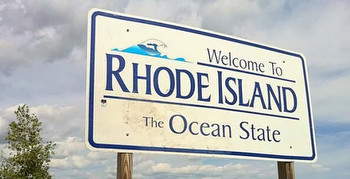The future of Rhode Island gambling is … quiet

LINCOLN — “Good luck, everyone.” So said a Bally’s Twin River dealer before dropping a ball on the roulette wheel. It spun for about three seconds before it landed on 11 black.
There were no winners on that bet, but there were also no groans — at least that anyone at the casino could hear.
Any gambler who wagered on the game did so from the comfort of home either on their phones or computers.
Welcome to the future of gambling in Rhode Island. Nearly nine months after the state approved online gambling, or iGaming, Bally’s invited members of the media on Thursday to get a peek at their expanded offerings ahead of its launch scheduled for Tuesday, March 5.
Before the General Assembly approved the legislation, lawmakers amended it so online table games could be simulcast from within Twin River, thus avoiding having to put the proposed expansion out to voters.
Craig Eaton, Bally’s head of Rhode Island operations, welcomed the change. He told reporters Thursday that simulcasting also allows people to still experience the casino without having to leave their homes.
“People like comfort, people like convenience,” he said.
Bally’s iGaming offerings will include blackjack tables, one roulette station, and 170 slot games. Eaton said Bally’s intends to get virtual baccarat online later in the month followed by “absolute blackjack,” which has no cap on the number of players.
But before iGaming officially goes online, the Providence-based casino giant on Friday will begin a four-day “technical launch” to a limited number of invited customers as a test to ensure any kinks are worked out ahead of time, Eaton said.
“It’s much like a restaurant does when they first open,” he said. “We just want to make sure it’s right and everything is ready to go.”
Bally’s also requires approval from the Rhode Island Lottery before its iGaming service can go live in the state, Eaton said. Based on observations from lottery spokesperson Paul Grimaldi, approval is likely.
“These folks at Bally’s have been partners with us for a very long time,” Grimaldi said in an interview. “We work really well with them, and they understand our concerns.”
One of those concerns: More consumers could start to flock toward virtual games instead of driving to the physical games or purchasing lottery tickets — sometimes referred to as “cannibalization.”
“We have to make sure whatever is wagered online will balance out what would have been actually wagered at the casino,” Grimaldi said.
Eaton said Bally’s has no intention of divesting from its physical locations in Lincoln and Tiverton, pointing to the $60 million expansion to the Twin River Casino last year.
“We’re always looking at opportunities,” he said “If something makes sense, can grow revenue, and can grow revenue for the state we will look hard at it.”
Online gambling would bring in $160 million in extra tax revenue for Rhode Island over the first five years, according to a 2023 report by Christiansen Capital Advisors, LLC — a consultant hired by the Rhode Island Department of Revenue.
There’s also 1.45% carveout for the towns of Lincoln and Tiverton from iGaming slots (and 1% from live table revenue). What Bally’s own revenue will be is unclear, as casino spokesperson Patti Doyle told Rhode Island Current the company does not disclose those projections.
The launch of iGaming in Rhode Island coincides with National Problem Gambling Awareness Month — a fact not lost on Grimaldi.
The concern mostly surrounds college-aged students, the primary market for online gaming, Grimaldi said.
“You’re not likely to see a young tech-bro tapping on a video screen downstairs here,” he said. “He’s going to be on his phone.”
The legislation that allows iGaming requires the casinos in Lincoln and Tiverton to offer programming such as the promotion of player self-exclusions and the gambling hotline. Bally’s must also reimburse the State Lottery Division no less than $200,000 each year for compulsive and problem gambling programs. Grimaldi said there is no cap for the casino giant to contribute.
“Bally’s has to fully fund whatever the demand is for problem gambling,” he said.
Safeguards on the Bally’s app include cool down times, deposit limits, and wager limits. Eaton added that the service will require two-factor authentication and requires new users to input the last four digits of their Social Security number in order to prevent minors from gambling.
“Those are protections that we are shown work,” Eaton said.




































